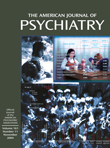The Concise Guide series is designed to provide theoretical and practical information for psychiatrists, psychiatry residents, and medical students. This volume considers epidemiology, diagnostic criteria, etiology, and current treatments for mood disorders. Findings and interpretation are weighted to the DSM classificatory system, and it would be disingenuous to expect otherwise, when this is the dominant model shaping research studies, treatment trials, and clinical management plans. The Dubovskys are to be applauded for distilling and blending a vast amount of information to provide the reader with that model and its application, some definitive answers to particular questions, and basic information to assist extended reading.
My concerns about the current synthesis reflect more of a general concern about the North American classification of the mood disorders—where the DSM model is accepted and reified rather than critically appraised, despite its clear limitations and application paradoxes. The authors fail to describe or be concerned about many such paradoxes. At a minor level, they present epidemiologic data in the introduction indicating that the lifetime prevalence of major depression is similar to its point prevalence, a logical fallacy suggesting some difficulty in separating the wheat from the chaff in tilling the file drawer.
At the macro level, we are informed (p. 59) that recent DSM systems have facilitated the description of “more homogeneous populations” (read constructs such as “nonbipolar, “nonpsychotic,” and “major depression”) and so advanced studies of treatment outcome. However, we are informed (p. 92) that the dexamethasone suppression test has moderate diagnostic specificity in distinguishing melancholic and nonmelancholic depression but that “this is not of great practical importance, given that both types of depression are treated similarly.” Later, we read that a mild and a moderate nonpsychotic single episode of major depression “can be treated with antidepressants or psychotherapy” (p. 219) and that “all antidepressants currently available are equally effective” (p. 220). The paradox of such nonspecificity (effectively building to an “All roads lead to Rome” treatment model) presumably reflects the importance of studies that are designed to test treatments nonspecifically (i.e., as if they have universal application) for nonspecific heterogeneous disorders (e.g., “major depression”).
Why are such nonspecific and unsophisticated conclusions seemingly sanguinely accepted by the authors? Why, after limited etiologic and treatment outcome research over the last 20 years, is the DSM model treated with such respect by the field? In essence, why run (i.e., treat differing depressive disorders and commit vast amounts of education and research in accord with such nonspecificity models) when you’re on the wrong road?

